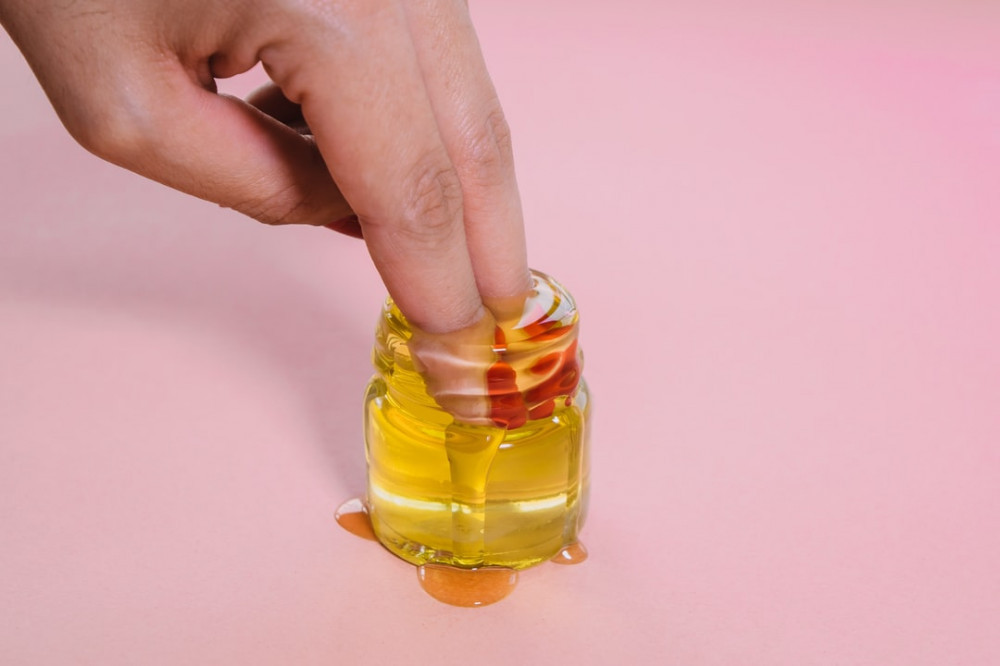Uses of grapeseed oil extend from cosmetics to medicine and cuisine. The connection between grapes and oil may seem strange to those who are not familiar with it, but grape seeds actually contain oil. This oil is light green and has strong antioxidant properties. It is commonly believed to be a natural source of unsaturated fatty acids, which are essential for the body’s health and vitality, with linoleic acid being the most important. Additionally, the oil is rich in minerals, as well as vitamins K and E. The hard shell of the seeds provides extra protection, ensuring that the oil remains well-preserved in the middle and is shielded from external contaminants or potential toxins.
Uses of Grapeseed Oil
✔️ This is utilized for the purpose of managing and avoiding vascular ailments and circulatory irregularities, encompassing issues related to blood vessels, enlarged veins, the hardening of arteries, and diseases affecting the peripheral blood vessels.
✔️ Grapeseed oil is rich in antioxidants, particularly vitamins E and C, which help fortify the walls of blood vessels and enhance their elasticity. It also helps to constrict blood vessels, reducing their dilatation and promoting healthy circulation.
✔️ It helps to reduce the appearance of age spots and freckles while also controlling oil production on the skin.
✔️ The grape seed oil has a high content of omega six and omega nine fatty acids, accelerates the formation of collagen and thus increases skin elasticity, lowers cholesterol
CAUTION: We should not drink or lubricate the oil if we are under the influence of alcohol or drugs because, in this combination, there is a strong stimulant.
✔️ Grapeseed oil is ideal for a variety of culinary applications, including dressing salads, cooking, frying, and baking. It exhibits excellent heat stability, preventing the formation of harmful free radicals during cooking. Additionally, it intensifies the flavor of dishes and blends well with herbs and spices, making it a perfect choice for enhancing the taste of your favorite recipes.
✔️ Accelerates the circulation of the system and helps to regenerate the skin after destruction due to UV rays; it has an anti-aging and anti-wrinkle effect.
✔️ This oil has been healthy and has been known in the world since ancient times.
✔️ Grapeseed oil is also used by masters who make musical instruments as a technical oil; it is used to protect the wood from which violins are made by hand.
✔️ Softens the skin and does not leave it oily, reducing stretch marks.
✔️ Due to its regenerative properties, the oil is commonly used in cosmetics, particularly for treating damaged skin. It is hypoallergenic and non-toxic, making it safe for use on sensitive areas like the skin around the eyes.
✔️ Because the oil is quickly digested and because it lowers cholesterol, it is suitable for a diet.
We Swallow It Three Times a Teaspoon
Recent research has indicated that individuals who smoke and consume grape seed oil thrice daily for a period of four weeks are less likely to develop unhealthy cholesterol levels and cardiovascular disease. Additionally, initial studies involving three patients with pancreatitis or pancreatic inflammation have shown that grape seed oil significantly reduced the frequency and severity of abdominal pain, providing relief when other medications were ineffective.
Laboratory studies have shown that:
Grape seed oil has been found to have numerous health benefits, including the prevention of various types of cancer, such as breast, stomach, colon, prostate, lung, and skin cancer. Additionally, it has been shown to repair damaged liver cells that have been affected by chemotherapy. The oil’s abundant antioxidants also play a role in inhibiting the growth of cancer cells. Other health benefits of grape seed oil include its ability to regulate blood sugar levels, improve night vision and photophobia, relieve allergies and asthma, and reduce the risk of circulatory diseases.
